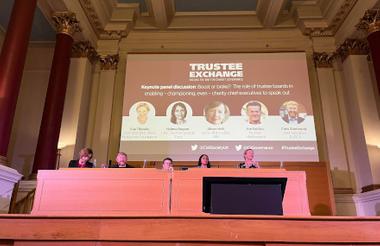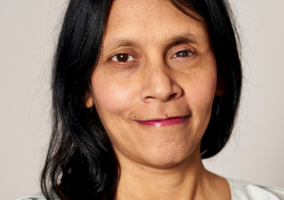Charities have been warned of potential media criticism when they campaign on issues related to their cause.
One of the key attacks on charity campaigning comes from the right-wing press, Halima Begum, chief executive of the Runnymede Trust, told an event today.
Speaking at Civil Society Media’s Trustee Exchange, the incoming CEO of ActionAid said one of the easiest ways charities can be attacked for campaigning is by the right-wing press criticising how much public funding it receives.
“It’s very important that people realise that one of the key attacks, one of the easiest ways you will be attacked on impartiality is by right-wing press looking at your public funding,” she said.
“Every time we’ve stepped out and spoken about issues there is another article somewhere about how much the charity has received in public funding and that is where the blurred line is for a charity managing that risk [of speaking out on social issues]. I think that is a risk area that trustees need to be careful about.”
Trust from charity chair important
Runnymede Trust itself received negative press for its work on an anti-racism report in 2021. Conservative MPs wrote a letter to the Charity Commission requesting an inquiry into the charity over claims of impartiality but the regulator found no wrongdoing.
Begum said some of the attacks were personally targeted towards her, so she decided to stop reading the newspapers.
“I just couldn’t do that, it was too shocking to read the trolling,” she said. She shared that her father was suffering with stage four cancer at the time.
She said that having a “high level of trust” from her chair and on the board enabled the organisation to face some of these attacks.
“If we don’t have high trust within the organisation entirely, it makes it very difficult for either a CEO or its staff to speak out about legitimate concerns that we need to be speaking about even respecting the impartiality rules.”
However, Begum said she thinks there is “an issue of losing relevance if you speak on everything” as a charity.
Charity CEOs ‘relatively absent’ from national conversations
The chief executives of charities are underrepresented in national media coverage despite needing to be part of the conversation, an event heard today.
Sue Tibballs, chief executive of the Sheila McKechnie Foundation (SMK), was speaking on a panel about the role of trustee boards in enabling charities to campaign.
Tibballs cited research that shows only 2% of guests on current affairs programmes like Question Time were charity leaders and said she thinks they are certainly “underrepresented” in these conversations.
“Chief executives, to get into public debate, need to speak to issues of the day, which does mean looking at the broader contributing factors to issues affecting their cause,” she says.
Chris Sherwood, chief executive of the RSPCA, said: “I think it is important that we do take those stands out there in the public domain because that’s what we’re about. If we’re not advocating the cause that we and our beneficiaries care about, who else is going to do that?
“And our society needs us to do that because we have been at the forefront of social progress, creating a kind and compassionate society for a long time, and we know there’s still a lot more to do. I think charities have a unique contribution to British society and that we have a vital role to play.”
Media wants to hear from charity beneficiaries says BBC correspondent
Alison Holt, social affairs correspondent at the BBC, added that charities are the “bedrock of society” that are “borne out of passion and a desire among citizens to change something, to make something better.
“So, from that inception, charities are at the bedrock of the national debate – or should be at the bedrock of national debate.” she said.
She said that the media wants to hear directly from beneficiaries rather than people organising services for them.
Joe Saxton, founder of nfpResearch, agreed that civil society needs a higher profile in media so it can have an equivalent profile in government to sectors like government.
He said choosing who should speak out on a social issue should not always be the chief executive if they are not the most relevant person to do so.
“Let's not have chief executives when somebody on the front line would give a better, more credible, more powerful testimony than a paid chief executive,” he said.
“People at the frontline are much harder to undermine and dismiss precisely because of their environment, so we should do that as much as possible. Research says that MPs are much happier with that side of things.”
Related articles











